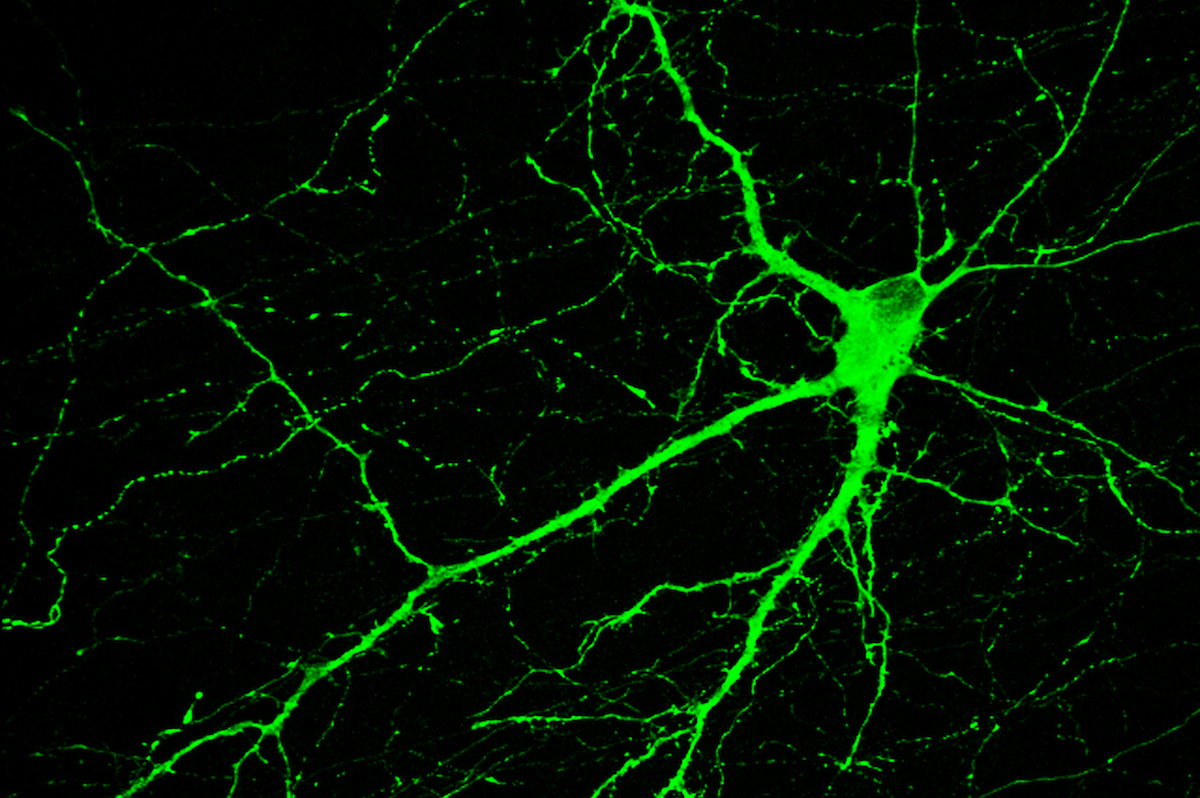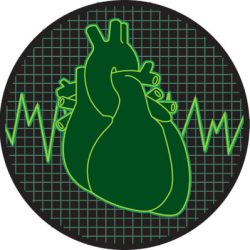
The UW team achieved success with neurons grown from monkeys’ own cells. Yan Liu and Su-Chun Zhang, Waisman Center
UW–Madison researchers have found that grafting neurons grown from monkeys’ own cells into their brains relieved the debilitating movement and depression symptoms associated with Parkinson’s disease.
The UW team achieved success with neurons made from induced pluripotent stem cells from the monkeys’ bodies. This approach avoided complications with the primates’ immune systems and takes an important step toward a potential treatment for millions of human Parkinson’s patients.
“This result in primates is extremely powerful, particularly for translating our discoveries to the clinic,” says UW–Madison neuroscientist Su-Chun Zhang PhD’91, whose Waisman Center lab grew the brain cells.
Parkinson’s disease damages neurons in the brain that produce dopamine, a brain chemical that transmits signals between nerve cells. The disrupted signals make it progressively harder to coordinate muscles for even simple movements and cause rigidity, slowness, and tremors that are the disease’s hallmark symptoms. Patients are typically treated with drugs like L-DOPA to increase dopamine production.
“Those drugs work well for many patients, but the effect doesn’t last,” says Marina Emborg, a Parkinson’s researcher at the UW’s Wisconsin National Primate Research Center. “Eventually, as the disease progresses and their motor symptoms get worse, they are back to not having enough dopamine, and side effects of the drugs appear.”
The results of the brain cell grafts are promising enough that Zhang hopes to begin work on applications for human patients soon.
Published in the Fall 2021 issue



Comments
Angela Rempel August 28, 2025
I was diagnosed 2018 with Parkinson’s disease. since I started the PD-5 treatment my slurred speech and especially the tremors gradually disappeared. it’s has done me a lot of good in terms of balance and ability to walk and get up from chairs. Google ( Uine health centre ) DON’T GIVE UP HOPE!!!